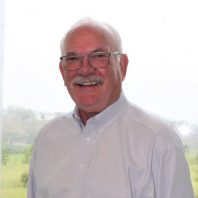
“Spark Cleantech Accelerator” launches 12-week program later today
 By Tom Ballard, Chief Alliance Officer, PYA
By Tom Ballard, Chief Alliance Officer, PYA
Just after the noon hour today, the founders of the six start-ups that comprise the inaugural cohort of the “Spark Cleantech Accelerator” will gather on the third floor of the Institute for Advanced Materials and Manufacturing on the University of Tennessee (UT) Research Park to begin their 12-week journey.
During their formal time here – Monday afternoons through Friday mornings, the entrepreneurs, including two from Tennessee, will be exposed to about two dozen speakers, mentors and instructors in a fast-paced, “topic of the week” curriculum organized by John Bruck, Director of UT’s Spark Innovation Center, and Carol Seamons, the recently appointed Director of Engagement for the Center.
“Our goal is that they have a toolbox that they have developed and are investor-ready when the accelerator ends,” Bruck explains. That goal translates into an investor pitch deck that could have as many as 15 elements and an elevator pitch.
Over the three months, topics that will be covered by outside speakers and instructors include business modeling; financial modeling; strategic partnering, supply chain management, and client engagement; valuation modeling; legal matters including intellectual property; funding; organizational development/building a team; communications and branding; and pitch preparation.
 “We will employ the classic business model canvas approach,” Bruck (pictured right) explained, adding, “The topic for any week builds on the one that was emphasized the previous week.” The one difference he noted between an I-Corps approach to the customer discovery process and the one Spark will employ is the number of interactions expected with potential customers.
“We will employ the classic business model canvas approach,” Bruck (pictured right) explained, adding, “The topic for any week builds on the one that was emphasized the previous week.” The one difference he noted between an I-Corps approach to the customer discovery process and the one Spark will employ is the number of interactions expected with potential customers.
Bruck used a racetrack analogy to explain where the accelerator will place its emphasis. If an investor was placing a bet at a horse race, that person would look at the track (i.e., market opportunity), horse (technology and business plan), and jockey (management team). Most place their bets on the jockey, so he said the goal is to “convince an investor that you (the accelerator participants) are a good jockey.”
 Another important element the Spark team will emphasize is self-assessment. “Strengths and weaknesses understanding is critical to building teams,” Bruck said with Seamons (pictured left) adding, “Self-awareness leads into being able to communicate.”
Another important element the Spark team will emphasize is self-assessment. “Strengths and weaknesses understanding is critical to building teams,” Bruck said with Seamons (pictured left) adding, “Self-awareness leads into being able to communicate.”
In an answer to a question about the criteria used to select the six start-ups, Bruck said the overall goal was to identify the best “tech-based companies that will be a small part of the big solution that the planet needs to address climate change.” That translated into those where decarbonization was an important element, those willing to consider relocating to the region, and those who aligned well with strategic partners like the U.S. Department of Energy, City of Knoxville, Tennessee Valley Authority, and the Heartland Climate Tech Partnership. The latter is a collaboration of start-up programs across the Greater Midwest Region including Evergreen Climate Innovations and mHUB, both based in Chicago, and Centrepolis Accelerator which is based in Detroit.
Other partners include Launch Tennessee, Tennessee Advanced Energy Business Council and its Energy Mentor Network that is funded by Launch Tennessee and will be providing the mentors, and the UT Research Foundation.
This afternoon will not be the first time the participants have met; they connected virtually week before last, and Bruck said their initial two-minute pitches were pretty good. The six are:
- frakktal (Houston, TX), founded by Jhana Porter, that is developing a no-waste manufacturing process that begins with 95 percent locally recycled materials such as tires and plastics;
- GenH (Boston, MA), co-founded by Siddarth Pannir, that has developed a rapidly deployable modular system to produce hydro-electric power from small dams and canals;
- Green Llama (Johnson City), co-founded by Kay Baker and Matt Keasey, is reducing the environmental footprint of consumer cleaning products by producing eco-friendly cleaning materials and sustainable packaging;
- Groundstar (Cincinnati, OH), founded by Ed Chan, that is a carbon capture technology focused on functionalized graphene for use in hard-to-abate emission sources;
- RAEV (Philadelphia, PA), founded by David Castley, that is developing an urban transportation system of small, shareable electric vehicles; and
- Windfall (Knoxville), founded by Ryan Ginder, that has developed a system to recycle and recover high purity fiberglass from wind blades and automotive composite scrap.
Both Bruck and Seamons bring complementary skills and experience to the effort. Bruck, an engineer by training and more recent investor in start-ups, is a Purdue University graduate and long-time Founder and Co-Owner of a Cincinnati-based environmental consulting firm. He moved to the region in early 2015. Seamons, a former investment banker, has consulting experience with Consilience Group in Memphis and most recently was a Private Banker with FirstBank for four years, having relocated to Knoxville about a year ago.
Like what you've read?
Forward to a friend!

